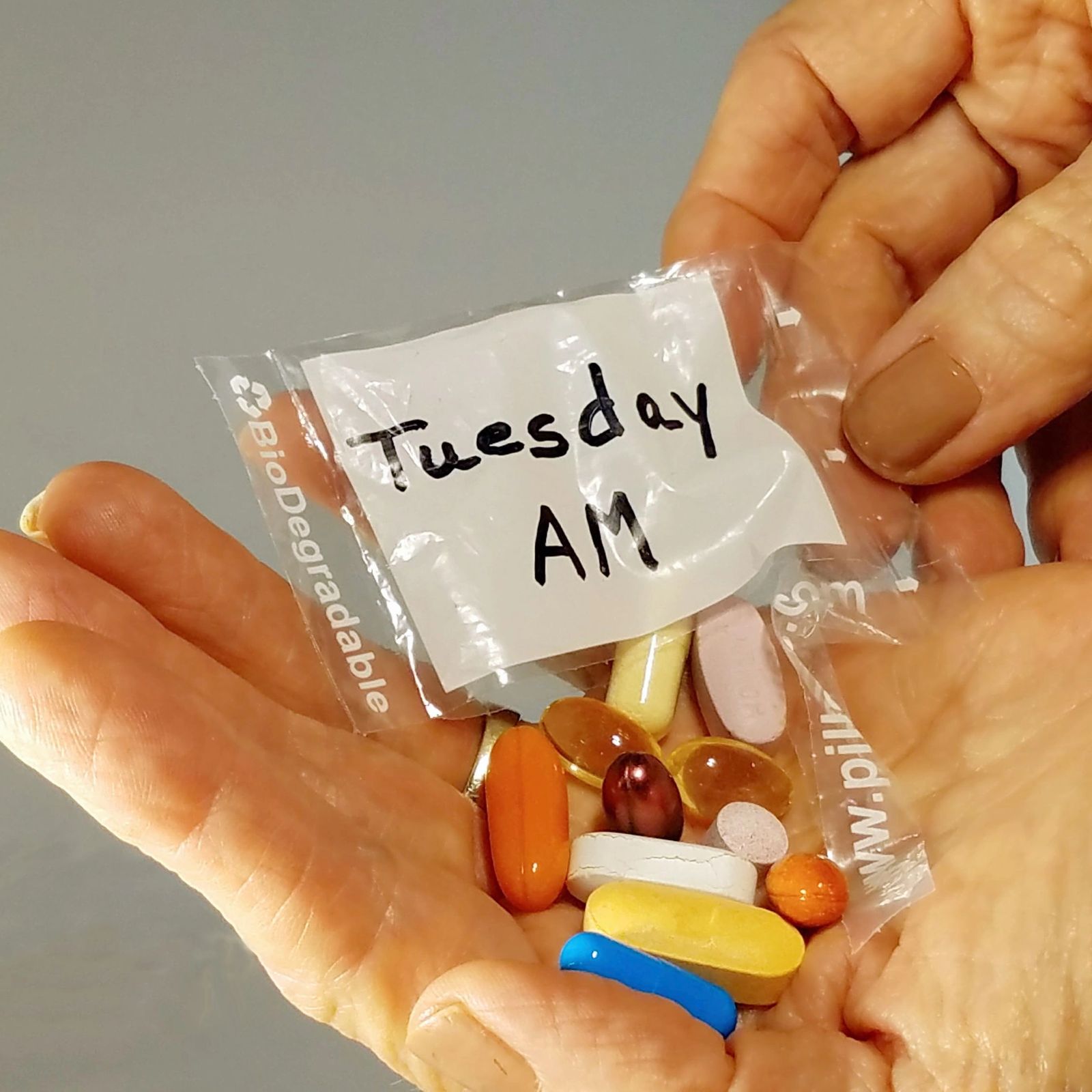Life is full of stresses, uncertainty, and change. If we as a society didn’t acknowledge that before, we’ve certainly started to in the last couple of years.
With this increased awareness around the different ways stress can impact our lives comes the opportunity to emphasize the importance of emotional wellness. Taking the time to care for your emotional health is increasingly seen for the important step it is – for both your emotional health and your physical health.
What is emotional wellness?
Emotional wellness refers to an individual’s ability to handle stress and adapt to change in a healthy way.1
Emotional wellness encapsulates aspects of stress management that include resilience, social connection, and mindfulness, along with any strategies we use to feel our best internally, regardless of external factors.
And feeling better emotionally can lead to feeling better physically. Research shows a link between having a positive mental state and your blood pressure, risk of heart disease, weight, blood sugar levels, and even lifespan.2
Emotional wellness tips
You might feel like your emotional wellness is the result of your life circumstances and personality, but there are a number of steps you can take to actively take charge of your emotional well-being.
- Build resilience: Resilience is the “how” behind emotional wellness. It’s the process of successfully adapting to changes or stress through mental, emotional, and behavioral adjustments.3 While many people believe high resilience to be a personality trait, it can also be a learned skill that can be developed over time.
You can build resilience by taking care of your physical health to help put you in a focused and positive mindset, by taking time to acknowledge the good in each day, and in practicing gratitude. In addition, you can actively consider any change or problem you encounter from different angles before diving into feeling stressed and overwhelmed, and you can surround yourself with positive people of diverse backgrounds who can help shape your thinking and offer support when you need it.1
By taking care to approach changes and challenges from a positive, open-minded state, you can protect your emotional health and reduce the stress you feel as a result.
- Get enough sleep: As we’ve previously discussed, getting enough quality sleep has a positive effect on your brain, heart, mood, weight, and immune system.
Particularly when it comes to your mood and emotional well-being, sleep is important for giving your mind a chance to process your emotions so you’re better able to react appropriately to the different situations you encounter.4 That can help boost resilience and help you feel better even when things get a little chaotic.
Not only can sleep improve your mood on a micro level, but it can also impact your overall mental health, as people who don’t get enough sleep are more likely to suffer from anxiety and depression.5
- Take care of your physical health: Beyond getting enough sleep, taking care of your physical health by eating healthy food, drinking enough water, and exercising can help set you up for success when it comes to your emotional health.
What you eat impacts how clearly you think and alert you feel, along with how well you’re able to concentrate. Food is also a factor in fatigue, decision-making, reaction time, stress, and anxiety.6 If you want to feel your best – inside and out – it’s important to fuel your body with a healthy, well-balanced diet.
As with diet, studies have linked water intake with mood, tension, depression, and confusion7 and have even found that dehydration can increase the risk of anxiety and depression.8
Meanwhile, physical activity can release endorphins that relieve stress9 and balance your body’s adrenaline and serotonin levels10, which can leave you feeling calmer and happier.
- Reduce daily stressors: There are many little things that happen over the course of the day that can influence your emotional wellness. You could oversleep, spill coffee on your clothes, hit every red light on the way to work, forget something important at home, burn dinner, have to help the kids with algebra homework (when you did not enjoy learning it the first time around), or find yourself in any number of similar minor – but stressful – situations.
There will always be things you can’t anticipate, but the key is to plan ahead for what you can. Set a backup alarm in case you miss the first one. Get rid of that travel mug that always dribbles. Set an “out the door” alarm to help get you in the car on time. Pre-sort all of your pills for the week in a handy travel pill planner or pill pouches, keep your vitamins with you so there’s no forgetting them, simplify dinners on especially busy evenings. (We don’t have an out for algebra homework, but we know you can do it!)
Being aware of the little things that throw you off throughout your day is the first step to getting ahead of them. Then you can take a look at what other steps you can do to prevent what’s preventable and minimize the effects of what’s not.
- Practice mindfulness: Speaking of awareness, mindfulness can help improve emotional wellness by giving you the opportunity to recognize what you’re thinking and feeling and how it’s impacting your life and well-being.
Mindfulness involves actively paying attention to your thoughts and feelings without classifying them as good or bad. The point is to be aware of your mental and emotional state and to accept them for what they are so you can act accordingly (vs. avoiding or dwelling). 11
Practicing mindfulness is an intentional strategy. It requires you to make a conscious effort to observe what you’re thinking and feeling – without judgment – and consider what can be causing those thoughts and feelings. From there, you can take action as necessary and let go of anything that is negatively influencing your emotional and physical health.
- Strengthen relationships: One important factor in emotional wellness that has come to the forefront in light of the recent COVID-19 pandemic is the role that interpersonal relationships play in our health. Beyond what you may have observed in your own life while distancing from others, long-standing research actually backs up the importance of strong, supportive relationships.12
Studies have found that those with healthy relationships with people are less likely to suffer from anxiety or experience a depression relapse, have lower blood pressure, and even heal more quickly from physical ailments. Not only that, but surrounding yourself with positive and supportive people can add meaning to your own life, encourage positive and healthy behaviors, relieve stress, and release tension.12
- Try new stress-reducing activities: Stress, in its most basic sense, is simply how your brain and body react to any new demand.13 It’s an unavoidable part of life; all you can do is develop strong coping mechanisms and stress-busters for when it happens.
We’ve covered this topic in detail, but some of our favorite stress-relieving tips include moving your body, taking time to rest, practicing breathing exercises, connecting with friends and family, and finding opportunities to laugh (watch a funny show, listen to a funny podcast, read a funny book, etc.).
You’ll notice that many of these tips have already been mentioned, as stress is intricately tied to mental wellness. Managing how you cope with stress is one of the most effective ways to take care of your emotional health.
Stress is going to happen, but you don’t have to sit back and take it. Embrace the importance of emotional wellness to help you weather whatever life throws at you.
References:
1National Institutes of Health: Emotional Wellness Toolkit
https://www.nih.gov/health-information/emotional-wellness-toolkit
2National Institutes of Health: Positive Emotions and Your Health
3American Psychological Association: Resilience
https://www.apa.org/topics/resilience
4WebMD: Surprising Reasons to Get More Sleep
https://www.webmd.com/sleep-disorders/benefits-sleep-more
5MedlinePlus: Healthy Sleep
https://medlineplus.gov/healthysleep.html
6Sutter Health: Eating Well for Mental Health
https://www.sutterhealth.org/health/nutrition/eating-well-for-mental-health
7Huffpost: Can Water Improve Your Mood?
8Healthline: Dehydration and Anxiety: How to Keep Calm and Hydrate On
https://www.healthline.com/health/anxiety/dehydration-and-anxiety#hydration-and-anxiety
9Harvard Health Publishing: Exercising to relax
https://www.healthline.com/health/anxiety/dehydration-and-anxiety#hydration-and-anxiety
10Healthline: Exercise and the Brain: The Mental Health Benefits of Exercise
https://www.healthline.com/health/depression/exercise#Exercise-and-brain-chemistry
11Psychology Today: Mindfulness
https://www.psychologytoday.com/us/basics/mindfulness
12Canopy Health: Building Healthy Relationships Can Increase Your Mental Health
https://www.canopyhealth.com/building-healthy-relationships-can-increase-your-mental-health/
13National Institute of Mental Health: I’m So Stressed Out! Fact Sheet
https://www.nimh.nih.gov/health/publications/so-stressed-out-fact-sheet

